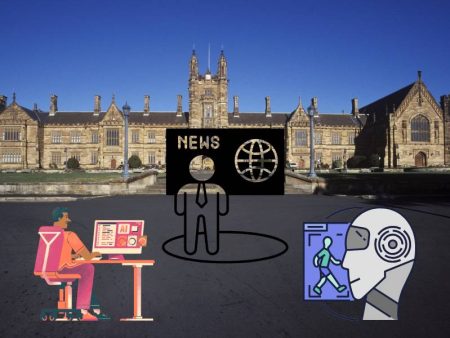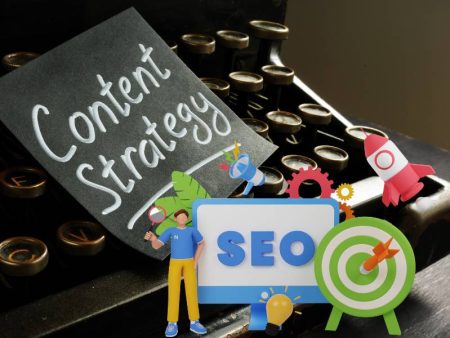Ever typed into Google and thought, “That result feels like it was written just for me”? Spoiler—maybe it was. In 2025, AI is no longer a side feature in search optimization—it’s the engine driving decisions from keyword strategy to UX signals, to even content tone. Let’s unpack how AI is redefining SEO, reshaping digital discovery, and what marketers need to pay attention to… fast.
AI-Driven Keyword Ideation
Remember the days of keyword lists and static spreadsheets? Now, tools predict user intent dynamically. I recently used an AI assistant that suggested content angles around a base term like “urban gardening.” It didn’t just output phrases like “urban gardening tips” or “city gardening ideas.” It surfaced timely long-form queries such as:
- “best edible plants for small balconies in tropical climates”
- “how to reduce pests in compact urban gardens organically”
- “indoor hydroponic setups for city apartments”
That feels less like scraping suggestions and more like seeing user minds—AI examines trends, sentiment, regional needs. That boosts relevance. And if you stray off-brand, AI will signal the shift—like a good cop.
Personalized SERPs: The AI Remix
Google used to treat all users the same. Not anymore.
Picture two people searching “how to start a podcast”:
- One gets a SEO-made step-by-step guide
- Another gets podcasting gear reviews and mic comparison tables
- Another sees boosted links to local audio studios
That’s AI reading user history, device context, time of day and mixing search results accordingly. It’s not just about ranking—it’s about serving the right intent at the right time. That also means your SEO strategy has to think, “Who am I serving at this moment?”
Content Quality Flags and AI Editors
Search engines use AI to spot fluff vs fresh insight:
“This is just a rehash of existing content.”
“This demonstrates depth and original research.”
Anecdote: I wrote a summary on urban gardening. Organic searches tanked. When I rewrote including personal stories—“my mess with balcony aphids” and “why I chose basil”—traffic jumped back. The algorithm rewarded authenticity. AI can sniff out tone and human insight—not just keyword frequency.
So before you hit publish, ask yourself: “Is this unique? Emotional? Valuable?” Not just SEO-optimized.
x
You need both data and personality. AI scouting helps—but your voice matters too.
x
Think of AI as a brainstorming buddy, not a ghostwriter. Your experience still defines value.
Enhanced Meta Tags and Rich Snippets
Guess what—AI now auto-generates dynamic meta descriptions and schema markup based on content. It recommends FAQs and how-to structured data segments that boost click-through. In pre-publish checks, tools highlighted “add FAQ list” and “upgrade product page with price schema.”
That proactive growth—on-page and off-page—is shaping how we think about metadata. It’s no longer afterthought, but content strategy core.
Voice Search and Conversational Queries
“Hey Google, how do I hide noise from my next video call?” That’s how users now search. AI-powered search engines parse conversational questions, giving relevant answers from blog posts—not just product pages or DIY guides.
To match this: we must craft content that converses, not lists bullet points. FAQs written as dialogue, content that includes question/answer sections, even couple lines in natural voice. That helps AI pick up the right context and serve the answer in voice assistants.
User Experience Becomes SEO
Metrics like bounce rate, scroll depth, site speed—transformed by AI monitors and signals. Recently I saw a blog post ranked #1 on Google for two years—until AI detected that 60% of users immediately bounced. It penalized that page, even though the content was top-notch. But it wasn’t engaging. AI favors content that holds attention. And when attention lasts, rankings improve.
Automated Technical SEO Audits
Before, we scheduled monthly crawl audits. Now they run daily. AI bots flag broken links, file size issues, crawl traps—then suggest fixes:
- “Compress hero SVG to reduce load by 45%.”
- “Update old schema with new fields.”
- “Compress 32 legacy images over 800px—lazy-load recommended.”
You essentially get an SEO assistant continuously monitoring—and nudging you towards healthier site performance.
Redefining Authority Signals
Google’s E‑A-T (Expertise, Authoritativeness, Trust) concept has added extra weight on AI-evident authority:
- Is content authored by a verified expert?
- Is there citation linking to reputable sources?
- Do authors have verified profiles with real credentials?
AI now checks those in real time: prompts for author bio, internal link authority signals, reputable references. So you can’t hide behind links anymore—you actually need verified expertise.
Terra That Needs Human Footing
With AI-created candidate content landing, we have to audit:
- Is the information correct? Are insights superficial or deep?
- Are we copying tone from clickbait sites?
- Is the content inclusive—recognizing all demographics?
Deploy AI to write initial drafts—but you shape context, nuance, and truth. AI can flub emotion, cultural sensitivity, or factual grounding.
Non‑Linear Strategy Planning
Our workflow in 2025 feels like:
- AI ideation for keyword + angle
- Test meta + schema
- Draft content outline via AI
- Human writes real content with tone, experience
- AI provides on-page SEO checks
- Pre-launch: AI suggests performance improvements
- Post-launch: AI monitors, suggests refreshes, flags bounces
It’s a spiral—not a simple checklist. And that’s good. It keeps things dynamic.
Emotional SEO: Where Humans Triumph
Example: a guide on grief journaling. AI drafted “10 steps to cope” outline, but it felt flat. When I wove in personal anecdotes—like “my tear-stained first entry”—search engagement spiked. People lingered. They commented and shared. The difference? Emotional weight the AI can’t replicate.
A/B Testing for Meta and UI
AI helps generate variants:
- Meta descriptions A vs B
- Headline variants
- Call-to-action burbles
Some of our tests showed a single word change—“DIY planter guide” vs “simple planter ideas”—could impact click-through by 12%. AI can speed variant generation, but humans still pick the emotional signal that resonate.
The Ethical SEO Blindspots
Think about privacy and data usage:
- AI tools track competitor insights—when does tracking become spying?
- Tools generate auto-replies or republished content—risk of plagiarism?
- AI monitors user sessions—when does personalization dip into manipulation?
There’s a boundary. Ethical SEO means telling your audience truthfully, not manipulating AI to trick rankings.
Non‑Linear User Journeys Matter More
Users no longer follow funnels—they bounce, branch, return. AI helps model multi-step journeys:
- AI preps infographic and table-of-content links
- You embed personalization via forms
- AI monitors click depth and refreshes content relevance
Again, humans and machines loop together—but only humans shape empathy and ethical focus.
Final Thoughts: SEO in 2025
AI is hyper-accelerating SEO—research, content generation, technical audits, meta variants, user behavior modeling. It’s replacing grunt labor, not empathy:
- Speed we get from AI
- Emotional trust humans craft
If you harness balance, AI becomes your SEO ally—not the eye in the sky. It’s a partnership: machine intelligence for metrics, human insight for emotion and truth.
TL;DR
- AI tools fuel smarter keyword ideation
- SERPs now adapt to user intent in real time
- Content quality review now includes emotional authenticity
- Rich snippets, voice search, accessibility and performance outrank ads
- Ethical considerations: privacy, manipulation, bias
- Successful SEO = AI speed + human empathy + ethical trust
Over to You
What’s your AI‑powered SEO story? Did a human‑AI combo triple your traffic? Did you hit a ranking glitch because you forgot a privacy step? Would love to swap war stories—and maybe solve them together.


